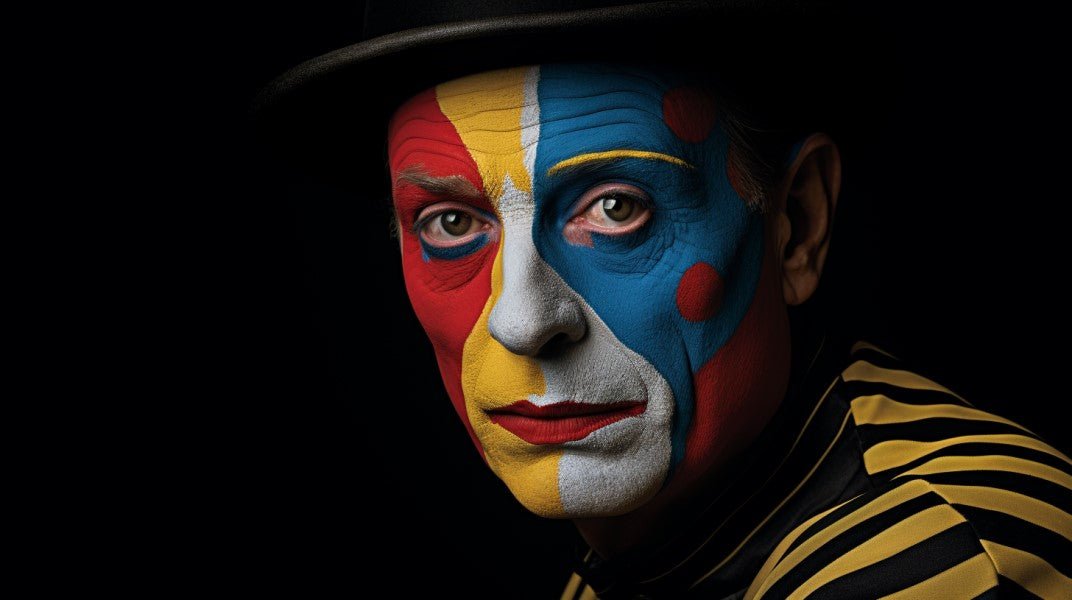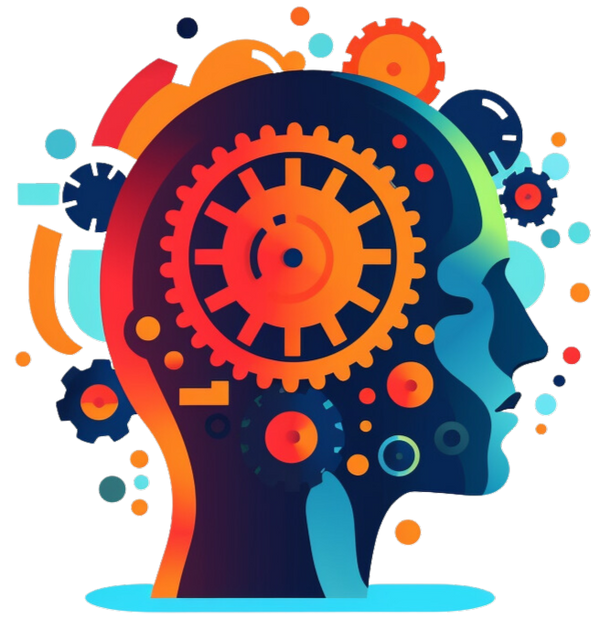
Because they put their childhood aside like an old hat...
Share
Sometime after my midlife crisis—but at least before I bought a fancy motorcycle or Porsche—I decided to become a father. Since then, thoughts have been running through my head that I hadn't previously considered. And one thing has now become very clear to me.
"You know, Sandro, it can have detrimental consequences for you in life if you get stuck in this role. In the role of a clown." A sentence from my high school teacher (he insisted on using first names). Spoken like that in front of a closed classroom door. Two people who were in the right place at the wrong time. The teacher was late for physics class, and I was the same. His reprimanding remark about the clown role was preceded by the remark that I was once again out of the blue. To which I must have replied, "Yes, just like you, Mr. Barblan."
Physics teacher Barblan acknowledged this retort somewhat contritely. Indeed, there was no denying that we were both, as particles in the space-time fabric, in the same place at the same time—and also reaching for the door latch at roughly the same speed. This provoked a situation that was comical in every respect. Hand in hand, both too late on the path to knowledge, so to speak. And of course, I had to laugh.

The difficult role of the clown...
"Sandro, I've noticed this in you, and it worries me." The role of the clown is a difficult one, one that virtually guarantees social exclusion. It's sometimes part of middle-aged adulthood to say goodbye to such roles. I should please be careful not to fall into the wake of the eternal Augustin. He said it, in essence – and energetically tucked his pink bike helmet under his arm.
It wasn't the first time I'd heard from teachers or authorities in other fields that I needed to work on my maturity. Maturity, it seemed, could be achieved through certain insights. Insights that usually overlapped significantly with the belief system of the person who was speaking of maturity at that moment.
I even once had a 30-year-old friend, who had always lived with and been dependent on his mother, rate my maturity as lower than his. I found this so absurd that my thoughts immediately wandered to the realm of kangaroos. As long as these animals peek out of their pouches, boldly—but completely helplessly—you simply can't speak of them as mature, I thought. Something seemed rotten in Denmark.

Becoming a father isn't difficult...
Maturity was a difficult concept to grasp, but as a prerequisite, it was a prominent factor. Fatherhood, for example, seemed to me to be the ultimate discipline, requiring a great deal of maturity. To reach that point, I was certain, one would have to have a master's degree in maturity (at least magna cum laude) in order not to unnecessarily endanger one's offspring. It couldn't be favorable in terms of Darwinian selection for immature men to simply mass-produce small humans.
Maybe that's why I waited so long to become a father. But then things happened that made me doubt the definition of maturity others had suggested to me: "You shouldn't do childish things, you shouldn't engage in Socratic questioning, you shouldn't experimentally reverse concepts, you shouldn't make senseless puns, you shouldn't have a solid plan for the future, you should be completely sure of yourself, you shouldn't covet toys."
First, my 30-year-old boyfriend slipped deeper and deeper into infantile regression—today we'd call him a "shadow child"—and refused to leave the family home. Meanwhile, another friend of mine said that although he didn't really drive the second Porsche in his garage due to lack of time, it was a great feeling to have a Porsche that he didn't really need. And I myself experienced a breakup that stirred up emotions I hadn't felt since childhood.
No matter how I looked at it, I suddenly saw the children in my fellow human beings. I saw the hurt boy who, fearful of the world, built his own little bubble and expelled others from it. I saw the boy who locked his little toy Porsche in the closet, saying, "Mine, only mine!" Yes, I even saw the boy with a pink bike helmet and a penchant for physics who said to his group, "This is definitely NOT funny, you clowns, this is definitely dangerous."

Children, everywhere, children. More or less extra flesh on top, a few masks at the ready, a few slogans on the blackboard. But at their core: children who could tremble like a leaf before the forces of chance and nature at any time if something didn't go according to their plans. Children who stood naked and helpless in the rain as the clouds above them broke to pieces and lightning sliced through the air beside them. Children who lectured, projected, maneuvered, and wrestled over words. Children who went through life without a safety net or a backup plan, running, stumbling, falling—and getting back up again.
...child, however, remains very
"Most people discard their childhood like an old hat. They forget it like a telephone number that's no longer valid," wrote Erich Kästner. And it became clear to me: The people he was referring to may have forgotten their childhood. But childhood would never forget them. Joys, sorrows, triumphs, and setbacks had all shaped them during this phase, when everything was still possible, but nothing was ever certain.
And at some point, because this thought borders on unreasonableness, these children had limited themselves. This and that were possible, certainly, but it wasn't mature. Because, well, because maturity had to be roughly what the vast majority considered maturity, because you had to be roughly here and there at such and such a time, because you had to have "found yourself" at such and such a time. Because childish thinking is detrimental to a civilization. It only knows the rules it has worked out for itself.

For a child's mind, opportunities and possibilities are absolutely real at all times. There's no insurance policy to supposedly keep chance in check, no third pillar to suppress the fear of aging and boredom, no Botox to temporarily forget about transgression. There are no convenient terms that can fence off "maturity," no master plan from business school to counter chaos.
Children aren't yet familiar with "The Tale of the Good Citizen." Dramatically, they'd probably prefer "Soup Punch." They don't set up mental hurdles or invent consolation prizes. Children see life for what it is: a constantly risky, yet very, very interesting undertaking. They are the apple that isn't—but is always becoming. They are never the ripe fruit that, devoured by worms and birds today, falls from the branch tomorrow, and rots into mush the day after.
"They used to be children, then they became adults, but what are they now?" asked Erich Kästner. "Only those who grow up and remain children are human," was his answer.
And then I realized what I had to be to be a good father. A person who BECOMES – rather than IS ("that's just how I am"). An adult in his thinking – and a child in his openness. A man willing to throw everything he's seen and experienced out the window. To see everything again, together, and experience it anew. Together with my son. From the very beginning.

